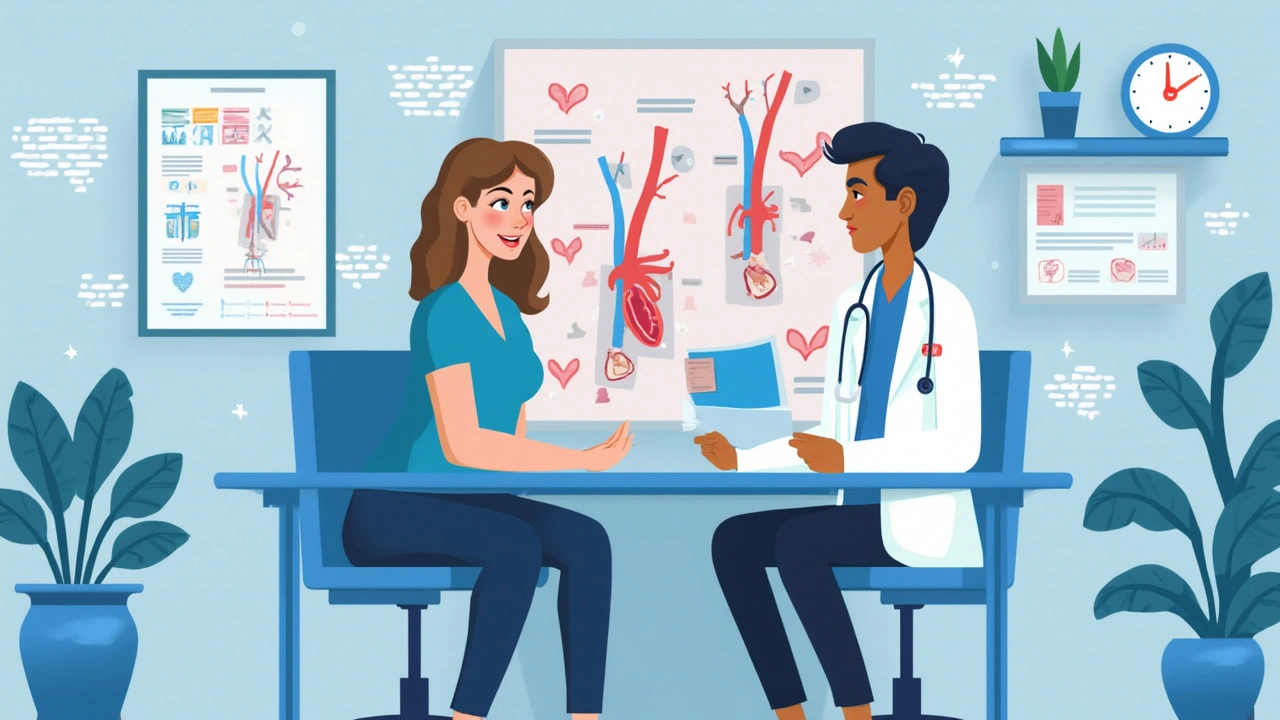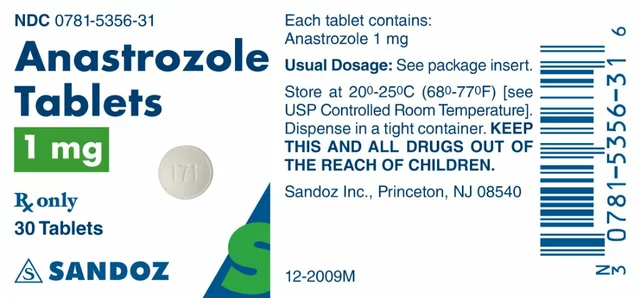It might sound dramatic, but a single pill has helped millions dodge heart attacks, strokes, and late-night scares in the ER. Zocor—yeah, that’s the brand name for simvastatin—has been around for decades, quietly saving lives. Yet, even with all its history, there’s still a lot of confusion about what this drug actually does and who should be taking it. Is it really as powerful as doctors say, or are the risks hiding beneath the surface? There are stories about muscle pain, warnings about grapefruit juice, and a swirl of opinions online. Let’s break it all down and make Zocor something you can actually understand.
What Is Zocor, and Why Do Doctors Prescribe It?
The main job of Zocor is simple: it drops "bad" LDL cholesterol while giving your "good" HDL cholesterol a bit of a nudge. Zocor belongs to a family of drugs called statins, and if you dig into the research, you'll find they've been heavy hitters since the early '90s. Doctors love prescribing Zocor because high cholesterol is one sneaky troublemaker—it doesn't hurt, but it can wreck your blood vessels and lead to heart attacks down the road.
Here’s how Zocor works. Your liver makes cholesterol, some of which your body needs, but too much of it gets dumped into your arteries. That’s when problems start—sticky plaque can narrow your arteries (think of it like that gunk in a kitchen sink drain), raising your odds of a heart attack. Zocor slows down how much cholesterol the liver pumps out. The science checks out, too. Big clinical trials like the Heart Protection Study showed people taking simvastatin lopped off almost a third of their heart attack or stroke risk compared to those on a sugar pill. That’s not just a small difference—it’s huge.
Doctors don’t just pass Zocor out to anyone with a bad test result. They usually look at your whole risk picture: age, blood pressure, smoking, diabetes, family history, and more. The higher your risk for heart disease, the more likely you'll get handed a statin prescription. But it’s not just about numbers. Some folks have a genetic cholesterol problem called familial hypercholesterolemia, and Zocor can be life-changing for them. If you’ve ever seen a family where every uncle and cousin had heart attacks before 50, you know how serious that is.
Now, what about people with "normal" cholesterol? Sometimes, even with decent numbers, a doctor will recommend Zocor if you’ve had a heart attack or stroke already—or if you’re dealing with diabetes. That’s because these groups have a super high risk regardless of cholesterol levels. Taking Zocor after a heart event is like putting on a seatbelt after a car crash—you don’t want to take more chances.
Getting a prescription isn’t the end of the story, though. Zocor is usually part of an all-out attack on cholesterol, which means everything from quitting smoking to swapping bacon for oats. The pill helps a ton, but it works even better if you’re doubling down on those healthy habits. Funny thing: sometimes just knowing you’re taking a drug makes people eat worse (“The statin will save me, right?”), but that’s a slippery slope. Doctors see it all the time: good habits and Zocor go hand in hand.
Cost-wise, Zocor isn't like some of those trendy new meds that have you choosing between your script and your rent. Because generic simvastatin is everywhere, it’s priced low in the U.S. and overseas. Insurance usually picks up the tab. Don’t let “brand name” scare you into spending extra—ask about the generic, and you’ll save piles of cash over the years.

The Science, Side Effects, and Stuff Nobody Tells You
Alright, so Zocor works—clearly. But what's the catch? This is where things get interesting. Like every medicine, Zocor’s got a list of possible side effects that range from “I've never noticed a thing” to “why can’t I get off this couch?”
The stuff you hear most often: muscle pain, weakness, or cramps. This isn’t imaginary; Zocor can mess with muscle cells sometimes, making you feel achy or tired. That said, the big, government-backed studies pinned the risk of serious muscle damage (called rhabdomyolysis) at less than 1 in 10,000 for normal doses. For most people, aches are mild or go away once the dose gets tweaked. High doses (like 80 mg daily) come with a higher risk, so most docs stick to the 10–40 mg range.
Liver enzymes can go up, too, which is why you’ll hear about blood test checkups every now and then, at least at the start. It's rare, but if you feel unusually exhausted, yellow-eyed, or have dark pee, your body might be telling you to back off and call your doctor. Don't panic—actual liver failure stays way, way down in the small print.
One curveball: Zocor interacts with a lot of common meds and even some natural stuff. Grapefruit juice is the famous example—downing a glass here and there won’t kill you, but if you’re slugging grapefruit every day, it can mess with how your body breaks down simvastatin, raising your risk for side effects, especially the muscle ones. Other meds to watch out for? Certain antibiotics, antifungals, HIV drugs, and even some blood pressure pills. That’s why docs and pharmacists always want your whole medication list before giving you the green light for Zocor.
There have been rumors about statins causing memory loss or diabetes. Here’s where the facts land: most major reviews found no firm link between standard doses of Zocor and big drops in memory. But yes, a few people report feeling “foggy.” If you notice this, talk to your doc—sometimes switching to another statin, or even pausing it for a bit, can help sort things out. On diabetes, taking Zocor (and other statins) may very slightly bump your blood sugar if you’re already high risk for diabetes, but the protection from heart attacks usually outweighs that tiny chance.
Most people taking Zocor never notice a thing—except for better cholesterol numbers at their next check-up. But still, don’t blow off weird new symptoms. Unusual bruising, lots of muscle soreness, bad rashes, or trouble breathing? Call your doc. They’d always rather get an early warning than a late-night meltdown.
Here’s a tip nobody talks about: the time of day you pop Zocor can matter. Simvastatin works best when taken in the evening, because the liver pumps out the most cholesterol at night. A lot of folks set a pill reminder on their phone or pop it next to their toothbrush to keep things simple. Miss a dose by a few hours? Take it when you remember, but don’t double up.
Wondering about life after Zocor? Some people think it’s a short-term fix, but statins are long-haul drugs. Stopping cold usually lets cholesterol creep back up. A few get motivated to lose weight and exercise hard enough that their doctor lets them drop the dose or stop altogether, but that's rare. For most, Zocor is like brushing your teeth: a daily thing that keeps you out of trouble.
What about stuff you read online? There’s a lot of hype, a lot of fear, and a good dose of bad science. Statins are among the most studied drugs ever, so if someone’s selling “natural alternatives” with big promises, double-check with your doc. Red yeast rice, for instance, actually contains a statin-like chemical—but it’s not pure, and you never know the dose. Caution beats gambling when it comes to your heart.

Everyday Tips for Getting Results With Zocor
Let’s get practical. If you’re starting Zocor, there are some tricks to make it count and sidestep headaches. First, don’t skip doses. Sounds obvious, but life gets busy, and missing just a few pills can let cholesterol climb. Pair it with another daily habit—like brushing teeth, feeding your pet, or making coffee. The easier you tie it to your routine, the fewer slip-ups you’ll have.
Food does matter, but not like you’d guess. You can take Zocor with or without food, but lay off grapefruit juice most days. If you love your citrus, stick to oranges or tangerines. For supplements, if you use a multivitamin, just keep your doc in the loop, especially with stuff like niacin or Omega-3s that also hit cholesterol. Some combos can boost side effects.
Exercise is your secret weapon. Even brisk walking pumps up your "good" cholesterol and makes Zocor work harder for you. The magic number is 150 minutes per week. Split it however you want: half-hour walks five days a week, or ten-minute bursts between Zoom meetings. It’s not about running marathons—just being consistent.
Diet tweaks can make a difference, too. Picture your plate: load up half with veggies and fruit, leave only a quarter for meat or starchy stuff, and fill the rest with beans or whole grains. Oatmeal, almonds, and fatty fish like salmon get a big thumbs-up for heart health. It’s not about going vegan overnight, but swap out the burger for a salmon salad sometimes, and you’ll see the change both in your energy and your lab tests.
When it comes to alcohol, moderation is key. A small glass of wine with dinner? No harm. But binge drinking can ramp up your liver strain, which isn’t good when you’re on any statin. If you notice headaches, muscle pain, or gut trouble after drinking, clue your doctor in.
Test results can be confusing—there’s LDL, HDL, triglycerides, and total cholesterol. Ask for a copy of your bloodwork. Chart your numbers every few months, and watch how changes in your lifestyle and pills show up on paper. It’s pretty satisfying to see the chart trend the right way. Don’t just trust the doc to tell you if you’re “normal”—know your numbers. For LDL, under 100 mg/dL is considered good for most people, while those with heart disease target even lower—sometimes under 70 mg/dL.
If you travel a lot, bring an extra week’s worth of medication, and keep it with you—not in checked bags, which can get lost. The same goes if you're switching time zones; just keep your routine as close as possible to your home schedule.
Watch out for online snake oil. A lot of “cholesterol cures” out there are more marketing than medicine. If it sounds too good to be true, it probably is. The purest form of prevention? A mix of Zocor, good food, reasonable exercise, and regular check-ins with your doctor.
Anxiety about medications is real. Some people start Zocor and worry about every twinge of pain, every foggy moment. Reality? Most folks do just fine, and the trade-off—less risk of heart attack or stroke—is usually worth it. Keep the conversation open with your doctor. If you’re nervous or having trouble, ask about switching to another statin or lowering your dose.
And lastly, don’t feel weird about needing medicine to manage your cholesterol. Genetics are stubborn. Sometimes even pro athletes need statins because of family history, not lifestyle. You’re not failing—you’re playing smart.
Bottom line? Zocor is a tried-and-true tool for keeping cholesterol in check. It isn’t magic, and it’s not the villain some make it out to be. Know what to expect, stay honest with your doc, and tie your pills to habits that last. That way, you’re not just surviving—you’re stacking the deck for a longer, healthier life.





Oh wow, this Zocor guide was way more thorough than I expected! 💊 I mean, lowering cholesterol sounds simple enough until you realize there’s so much behind how these meds actually function inside our bodies.
Some people fear side effects like muscle pain or liver issues, but honestly, the article did a great job distinguishing between myths and legit warnings. It’s reassuring to know you don’t have to dive into panic mode as soon as you feel a slight ache.
Still, I wonder how often patients actually get good info before starting on simvastatin. Docs can sometimes skim over details given time constraints 🤷♀️. Having this kind of straightforward, science-backed advice is super helpful for anyone curious or anxious.
Also, I'd love to hear personal experiences! Like, how do folks manage lifestyle while on Zocor? Diets, exercise, anything that really complements the treatment?
This article reminds me that understanding medication is not just about popping a pill but really about engaging with your own health philosophy. Zocor, or simvastatin, invites us to confront lifestyle, diet, and genetics.
The side effects discussion is crucial since we often underestimate the balance between benefit and risk. It's a reminder that medicine is as much art as it is science.
I appreciate that it debunks myths, too. So much misinformation clouds decisions before people even have a chance to reflect thoughtfully on what's best for their bodies.
Does anyone here see Zocor as just one part of a wider commitment to heart health? Sometimes the mental journey is just as significant as the physical.
Hey everyone! Reading about Zocor made me realize how much there still is to learn about statins. One thing I didn’t know was how it specifically affects the liver enzyme pathways. Can anyone explain a bit more? How risky is liver damage realistically?
Also, has anyone else noticed lifestyle changes after starting on simvastatin? I’m curious, do people feel motivated to adopt healthier habits or is it more like relying on the medication alone?
These sorts of practical insights help me a lot since clinical info sometimes feels too abstract.
Appreciate the questions here. Speaking from some experience in healthcare collaboration, I want to underscore that simvastatin is generally safe when monitored correctly.
Liver damage is very uncommon and usually caught early through routine blood tests. Communication with your healthcare provider is key—always report unusual symptoms promptly.
In my view, lifestyle changes combined with medication create the best outcomes. Meds alone won't fix heart health—think of simvastatin as a powerful helper, not a standalone fix.
Encouragingly, many patients do report increased motivation to eat better and exercise once they start, realizing this drug is just one piece of a bigger picture.
Here we go again, another magic pill with a laundry list of 'what you should know.' Honestly, if people actually cared about their lifestyle as much as they fear side effects, maybe we wouldn’t be so dependent on things like Zocor.
Not saying statsins are useless — they do their job — but watching people obsess over minor aches while still eating junk food and binging Netflix? Comedy gold.
The article is nice and neat, but let’s be real: if you want good results, it’s on you to put in the effort beyond just swallowing pills.
Anyone have success stories where the drug was a game changer alongside lifestyle, or is this mostly a crutch for convenience?
Oh my gosh, I can totally relate to all the emotions around starting on something like Zocor. It’s such a mix of hope and fear. The side effect section was really informative and helped me calm down quite a bit.
Also, the practical advice on maximizing treatment really stood out. Sometimes we forget that how we live day-to-day can actually make a huge difference in how meds work for us!
For anyone considering it, I’d say keep an open mind and stay connected with your doctor. It’s a journey, not a quick fix 😊.
Obviously, anyone remotely serious about health should already be familiar with statins' mechanisms. This article feels like it’s aimed at the uninformed masses who haven’t read a single study on cholesterol management in their life.
But I will concede, it’s good that myth-busting is included — sadly necessary for a population overly reliant on anecdotes rather than evidence.
For those truly interested, the key takeaway should be the balance of proven lifestyle interventions with pharmacological support. Anything less is just ignorance dressed up as concern.
Although, I am curious: how many here actually track biomarkers religiously and adjust lifestyle accordingly versus just following prescriptions blindly?
Glad to see some rational discussion here. Statins like Zocor have a well-established role, but the internet is infested with hype and paranoia.
That said, the handful of patients who come in convinced that cholesterol meds are the devil really need engagement filled with facts, and this guide goes a good distance towards that.
Also, the side effects are usually mild and rare, so fearmongering on that front is just unhelpful noise.
Personally, I think the best approach is informed consent plus regular monitoring — that way patients stay in the driver’s seat.
Alright, I'll throw in my two cents: Zocor ain’t some miracle worker but rather a finely tuned machine oiling the body’s gears. Statins lower cholesterol but can sometimes play the villain with side effects, so it’s a tightrope walk.
What annoys me most is when folks treat these meds like candies — expecting instant fixes with zero lifestyle adjustments. Come on, we all gotta lift our game, not just swallow pills.
Having said that, kudos to the article for presenting a brutally honest picture — no sugarcoating but no fearmongering either.
Balance, awareness, and accountability: the holy triad.
Seems like most here agree that Zocor works best as part of a broader holistic approach. Not just a pill, but a nudge towards healthier choices.
Honestly, I find the stats on how many patients improve Cholesterol levels alongside diet changes encouraging. It’s not all doom and gloom or miracle fixes.
Just wanted to add that regular checkups and open conversations with healthcare providers make a real difference, so don’t be shy to ask questions or voice concerns.
Wow, this thread has me feeling all the heart vibes ❤️! Starting Zocor was scary for me at first, but learning about it slowly helped me take control instead of letting fear take over.
And omg, the way the side effects info was broken down made me feel seen — like my worries weren’t just dismissed.
Honestly, sharing our ups and downs with this med could be super supportive, like a little community for hearts.
Anyone else feel like their emotional health shifted after going on simvastatin?
😊